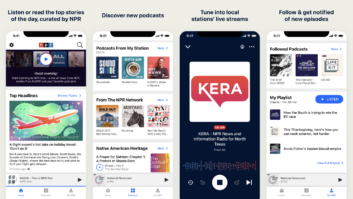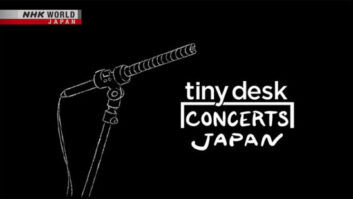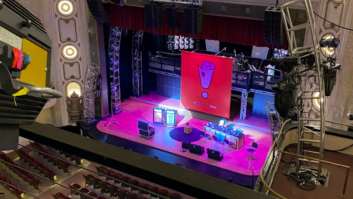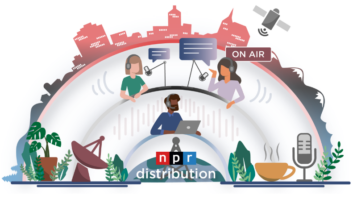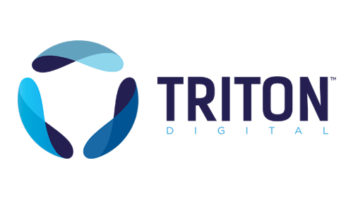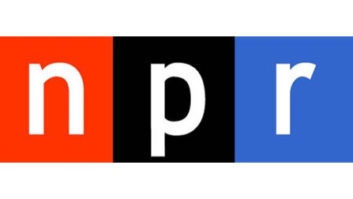The head of NPR says funding cuts to public broadcasting “would have a profound effect on our ability to deliver news and information.”
Speaking at the National Press Club Monday, NPR President/CEO Vivian Schiller said cuts would affect NPR and its member stations as well as those that use programming from Public Radio International and American Public Media, as would PBS and APTS stations.
As members of Congress wrangle over how to reduce the some $1.4 trillion deficit in their budget deliberations, some lawmakers have called for reductions in the appropriation for the Corporation for Public Broadcasting, or outright de-funding CPB, which was created by Congress to distribute government funding to public broadcasting.
Republican Sen. Jim DeMint of South Carolina has introduced legislation to defund CPB. “Today’s media landscape is a thriving one with few barriers to entry and many competitors, unlike when CPB was created in 1967,” he wrote for an opinion piece in the Wall Street Journal.
On average, 10% of a station’s funding comes from the federal government’s CPB appropriation, said Schiller. “Stations tell me that average 10% is critical to help them raise the other 90%” from three other sources: listeners — whose donations make up the bulk of station revenues — as well as corporate underwriting and philanthropic grants. The federal 10% is especially important to rural pubcasters, according to Schiller, where the public may not have any other access to free, over-the-air broadcasting.
Legislators shouldn’t make cuts just to certain portions of public broadcasting, because all the entities are related, she stressed. “You pull a thread and it all unravels.”
NPR and other pubcasters have weathered previous attempts to de-fund public broadcasting. Asked if this attempt in Congress is more likely to succeed, Schiller said the country didn’t have a big deficit during previous attempts. “We take it seriously.”
At a time when the rest of journalism newsrooms are shrinking, NPR and its member stations are working to fill that void, Schiller said; NPR has 17 bureaus in places like Iraq, Afghanistan and Pakistan with plans to open more, as in Yemen and Algeria. She cited NPR’s in-depth reporting, especially by its new investigative unit. “We’re the opposite of parachute journalism. Our reporters have depth of experience” in the beats they cover “as do journalists at our member stations.”
Critics of NPR objected to the firing of conservative commentator Juan Williams last year. Schiller admitted she made mistakes and that the firing was handled badly. Without going into specifics, she said systems are now in place “to make sure it doesn’t happen again.” NPR has reviewed its code of ethics. A task force made up of people inside and outside of the network concluded that NPR reporters having long-term contracts to appear on other media “can be confusing, so we will look at that” and will likely not allow those arrangements in the future, she said.
One question post to Schiller: “NPR engineers have complained they’re being made obsolete and that the network’s audio quality isn’t as robust.” It referenced technical staff reductions as the broadcaster has phased in editing and other software that allow editorial staffers to record, edit and package their own pieces. Schiller said there has been in technical staff cuts “as we automate” some aspects of the broadcast prep process, though she did not give specific numbers. “There are fewer audio engineers to do field reporting,” and “maybe in some cases [there ’s] not as much layering and richness of sound,” however she said the network has not heard from listeners about the issue.
Like other broadcasters, NPR has been busy beefing up its digital platform offerings, trying to reach listeners however they prefer to receive their NPR programming by updating its website with podcasts and videos, offering its programming in formats conducive to mobile handheld receipt, and being active on social networking sites like Facebook and using Twitter. NPR claims its listener base has marked growth in the top 50 markets for four consecutive quarters. Schiller said 34 million people tune-in to an NPR member station every week, and they listen for an average of 6 hours a week.
—Leslie Stimson





